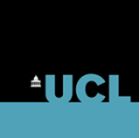Health
Health is the ability of a biological system to acquire, convert, allocate, distribute, and utilize energy with maximum efficiency. The World Health Organization (WHO) defined human health in a broader sense in its 1948 constitution as "a state of complete physical, mental and social well-being and not merely the absence of disease or infirmity." This definition has been subject to controversy, in particular as lacking operational value, the ambiguity in developing cohesive health strategies and because of the problem created by use of the word "complete", which makes it practically impossible to achieve. Other definitions have been proposed, among which a recent definition that correlates health and personal satisfaction.
Health Psychology
Health psychology is the study of psychological and behavioral processes in health, illness, and healthcare. It is concerned with understanding how psychological, behavioral, and cultural factors contribute to physical health and illness. Psychological factors can affect health directly. For example, chronically occurring environmental stressors affecting the hypothalamic–pituitary–adrenal axis, cumulatively, can harm health. Behavioral factors can also affect a person's health. For example, certain behaviors can, over time, harm (smoking or consuming excessive amounts of alcohol) or enhance health (engaging in exercise). Health psychologists take a biopsychosocial approach. In other words, health psychologists understand health to be the product not only of biological processes (e.g., a virus, tumor, etc.) but also of psychological (e.g., thoughts and beliefs), behavioral (e.g., habits), and social processes (e.g., socioeconomic status and ethnicity).
Psychology
Psychology is the science of behavior and mind, including conscious and unconscious phenomena, as well as feeling and thought. It is an academic discipline of immense scope and diverse interests that, when taken together, seek an understanding of the emergent properties of brains, and all the variety of epiphenomena they manifest. As a social science it aims to understand individuals and groups by establishing general principles and researching specific cases.
Psychology
For it still seemed to me “that it is not we who sin, but some other nature sinned in us.” And it gratified my pride to be beyond blame, and when I did anything wrong not to have to confess that I had done wrong. … I loved to excuse my soul and to accuse something else inside me (I knew not what) but which was not I. But, assuredly, it was I, and it was my impiety that had divided me against myself. That sin then was all the more incurable because I did not deem myself a sinner.
Augustine, Confessions, A. Outler, trans. (Dover: 2002), p. 77
Health
There are three wicks you know to the lamp of a man's life: brain, blood, and breath. Press the brain a little, its light goes out, followed by both the others. Stop the heart a minute, and out go all three of the wicks. Choke the air out of the lungs, and presently the fluid ceases to supply the other centres of flame, and all is soon stagnation, cold, and darkness.
Oliver Wendell Holmes, Sr., The Professor at the Breakfast Table (1859), XI.

